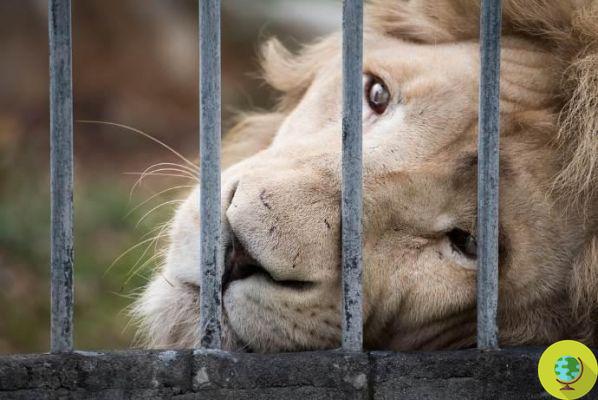
In South Africa it happens that wild animals such as lions are raised and then marketed for their bones. Despite international outrage from conservation organizations, this continues to happen.
He is about to end up run over, his mother saves himIn South Africa it happens that wild animals such as lions are raised and then marketed for their bones. Despite international outrage from conservation organizations, this continues to happen. Here is what is reported in two reports.
In 2017, South African Environment Minister Edna Molewa had set the number of lions to be killed at 800, but in 2018 the same minister nearly doubled to 1500 and the Department of Environmental Affairs never specified why. establish or expand the quota.
To denounce him are two investigative studies that tell the sad world of the breeding of lions in captivity in South Africa where wild animals 'are used' for the bone trade, legal and illegal, in Asia.
The first report is The Extinction Business edited by the EMS Foundation with BAN, Animal Trading, the second is The economics of captive predator breeding in South Africa produced by the South African Institute of International Affairs (SAIA).
According to reports, it is estimated that between 7 and 8 lions live in captivity in 300 structures, literally bred for the so-called 'canned hunting', i.e. for their bones which are then used in Chinese medicine.
In reality, lion bones are sold on the black market as tiger bones that the Chinese believe have the power to cure rheumatism and impotence. They are then used to produce a dessert, a bar also made with turtle shell and tiger bone wine which would give energy and vigor to those who drink it.
All this is documented in the reports where it is emphasized that no other country besides South Africa is authorized to export lion bones. It must also be said, the reports denounce, that there is no database, so it is not even known how many structures there are or a real number of lions in captivity.
"I am very dismayed that there is no legitimate scientific rationale for exporting the skeletons," says Luke Hunter, director of conservation at Panthera, an international group for the conservation of big cats.
How does it work?
A lion's skeleton can cost up to $ 1500, bones sell for nearly $ 800 a kilo. These are imported into Asia and then resold at their weight in gold. A CITES report claims that 2017 skeletons were exported in 3469.
Read also:
- Tiger Bone Wine: Felines raised on Chinese "farms" to produce aphrodisiac bottles
- Animal abuse: 10 horrific practices China should abolish
Dominella Trunfio


























